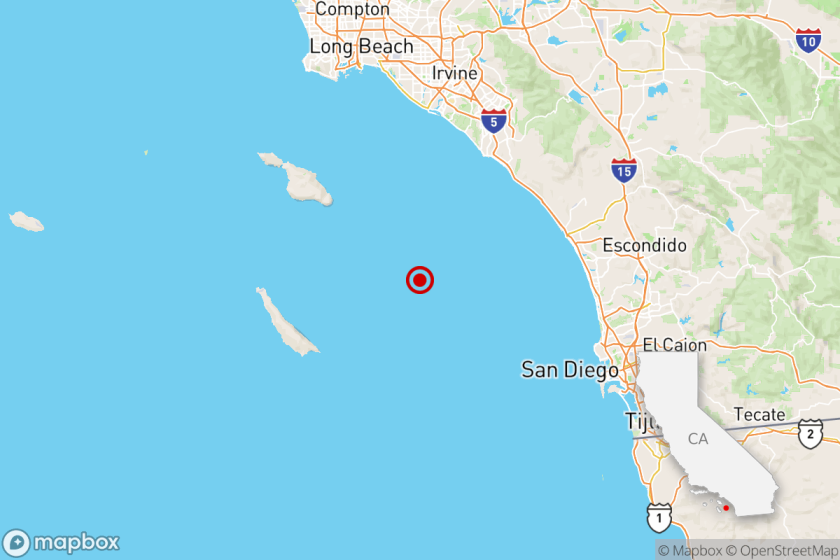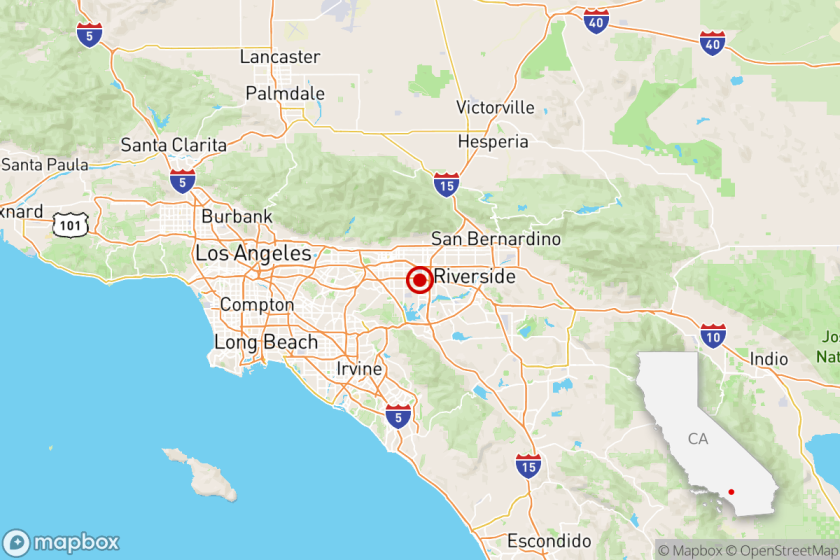Estate Divides Families of 2 Quake Victims : Litigation: Couple died when Sherman Oaks house collapsed. Now survivors have filed a flurry of lawsuits.
They lived with all the usual fast-lane L.A. trappings--jobs in “the industry,” a hillside house with stunning views, luxury cars, no marriage certificate. Then they lost everything, including their lives, when the house slid downhill in the Northridge quake.
Now the deaths of Marc Yobs and Karen Osterholt have given rise to another part of the lifestyle: an avalanche of litigation, including a posthumous palimony complaint.
Osterholt’s family is suing Yobs’ relations for a share of his estate, including the collapsed Sherman Oaks house, some quake-damaged antiques and his $300,000 life insurance policy. Both sets of relatives are pursuing separate suits against the sellers of the home on Sherwood Place.
Legal evidence is expected to include coroner’s reports on the couple’s Jan. 17 deaths because Osterholt was the sole beneficiary of Yobs’ life insurance policy--but only if she survived him.
“There’s a dispute--and this is kind of gruesome,” said attorney Jane Grilliot, “over whether they died simultaneously or who lived longer.”
If Osterholt died first or at the same time, the policy’s $300,000 proceeds would become part of his estate, to be claimed by his relatives. But if Yobs died first, the suit contends, the insurance money would then be hers, to be parceled out to her family.
Grilliot, who represents Osterholt’s estate against the house’s sellers, said she could not comment further on the rift. And lawyers for the rival estates also refused to comment.
But according to court documents and other sources, the palimony dispute arose in the months after the couple’s families buried them side by side, when Osterholt’s parents received none of Yobs’ life insurance settlement.
Osterholt and Yobs, both San Fernando Valley natives, were working in the entertainment industry when they died. Osterholt, 30, had recently begun working as a receptionist at Mark Goodson Productions after a longtime job waiting tables. Yobs, 32, had just been promoted to assistant general manager of the Post Group, a film production company where he began as a film library clerk and worked his way up over 6 1/2 years.
In a suit filed May 4 in Los Angeles Superior Court, Osterholt’s mother, Eileen Waldrop, who is also administrator of Osterholt’s estate, alleged that the Prudential Life Insurance Co. of America ignored the estate’s claims and wrongfully gave the insurance money to the Yobs family, in part because Yobs’ mother is a Prudential employee.
The suit notes that under state law, when an insured person and the only named beneficiary die together, insurance proceeds revert to the insured’s estate. But the suit contends that there is medical evidence that Osterholt survived in the ruins longer, making her estate eligible to get the money.
An attorney for Osterholt’s relatives, Robert S. Waldo, would not elaborate on the court record. Similarly, a lawyer representing the Yobs family, Martin C. Bobak of Los Angeles, would not comment.
But Yobs’ older brother, Dave, challenged the suit’s central claim that Osterholt lived longer, saying it is based on a review of coroner’s reports by a privately retained physician. No autopsies were performed on Yobs or Osterholt, Dave Yobs said, adding that the suit has been a blow to his grieving parents, Margaret and Henry.
Yobs of Woodland Hills also challenged a second suit filed last month that demands a share of his brother’s estate for Osterholt’s survivors, contending that Osterholt sacrificed her interests to help support Yobs’ career.
Once they began living together, the suit says, Osterholt “continued to work as a waitress, giving up opportunities for education and opportunities to advance in a career . . . to devote her entire skills, efforts, labors, and earnings, to maintaining the household for (Yobs).”
*
Both sides agree Osterholt never held title to the house, purchased in February, 1992, for $400,000. But the palimony suit says the two “cohabitants” of nearly eight years had an oral agreement to share everything equally. In an interview, Grilliot said: “We do know that funds from both parties were used to purchase the house. We’re still trying to figure out how much each contributed.”
“I’m really irritated that (the suit says) she was entitled to half of his house,” said Dave Yobs, a real estate agent who represented his brother in the sale. “Her income wasn’t used to help qualify for (the house). My brother bought it as a single man. The title was very specific on it.”
Dave Yobs also disagreed with the length of time that his brother--memorialized in the credits of the action film “Speed”--had lived with Osterholt, saying the pair had an on-again, off-again relationship until Yobs bought the house.
Osterholt’s parents, Waldrop and Gerold Osterholt, could not be reached for comment.
In separate legal actions, both families are suing the attorney and his business partners who sold the house to Yobs, contending they suppressed a crucial engineering report warning of structural flaws in the house.
In fact, the twin wrongful death and fraud suits charge, a prospective buyer named James Malmberg backed out after receiving the unfavorable report from an engineer. The defendants switched escrow companies and real estate agents “and anyone who knew about the report” before selling the house to Yobs, said Alexander Robertson IV, the Yobs family’s lawyer.
The defendants also set up two dummy corporations--Properties Du Monde Inc. and Danat Investment--to hold title to the house and insulate themselves from responsibility for the damaging engineering report, Robertson said.
The suits name as defendants attorney and real estate investor Lawrence R. Gordon; his alleged partner and contractor Richard Robinson and Robinson’s wife Margarette; Properties Du Monde Inc.; the Danat Investment Co.; and two more alleged business partners of Gordon’s, Daniel J. Eget and Nathan J. Reese.
Only Reese and Eget could be reached for comment.
Reese said he knew nothing about the matter, but acknowledged that it may have been one of his business interests handled by his lawyers and accountants.
Eget said: “I think when the facts come out, it’ll be known that as far as Danat, myself and Reese are concerned, we are not a part of this deal.”
More to Read
Sign up for Essential California
The most important California stories and recommendations in your inbox every morning.
You may occasionally receive promotional content from the Los Angeles Times.










